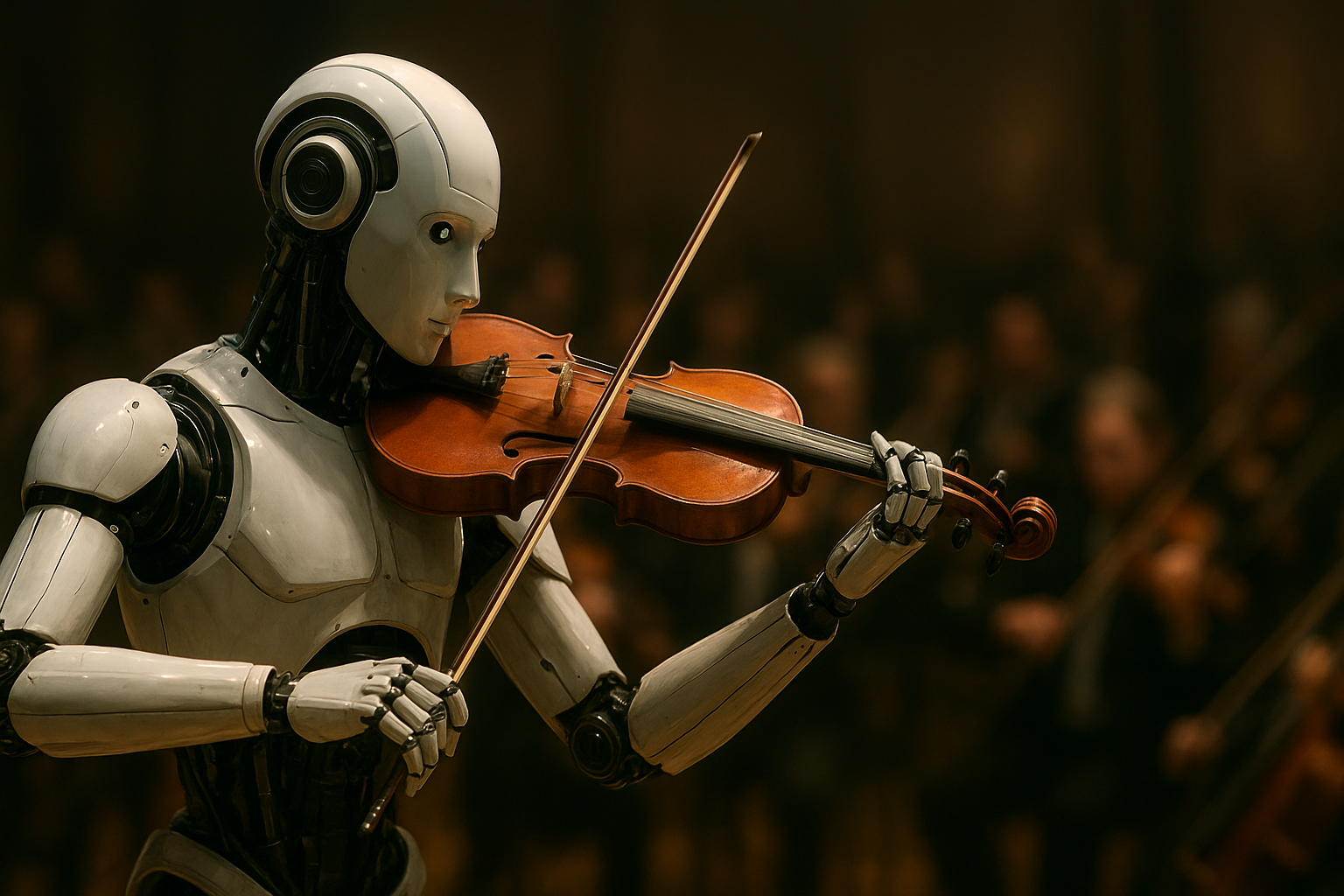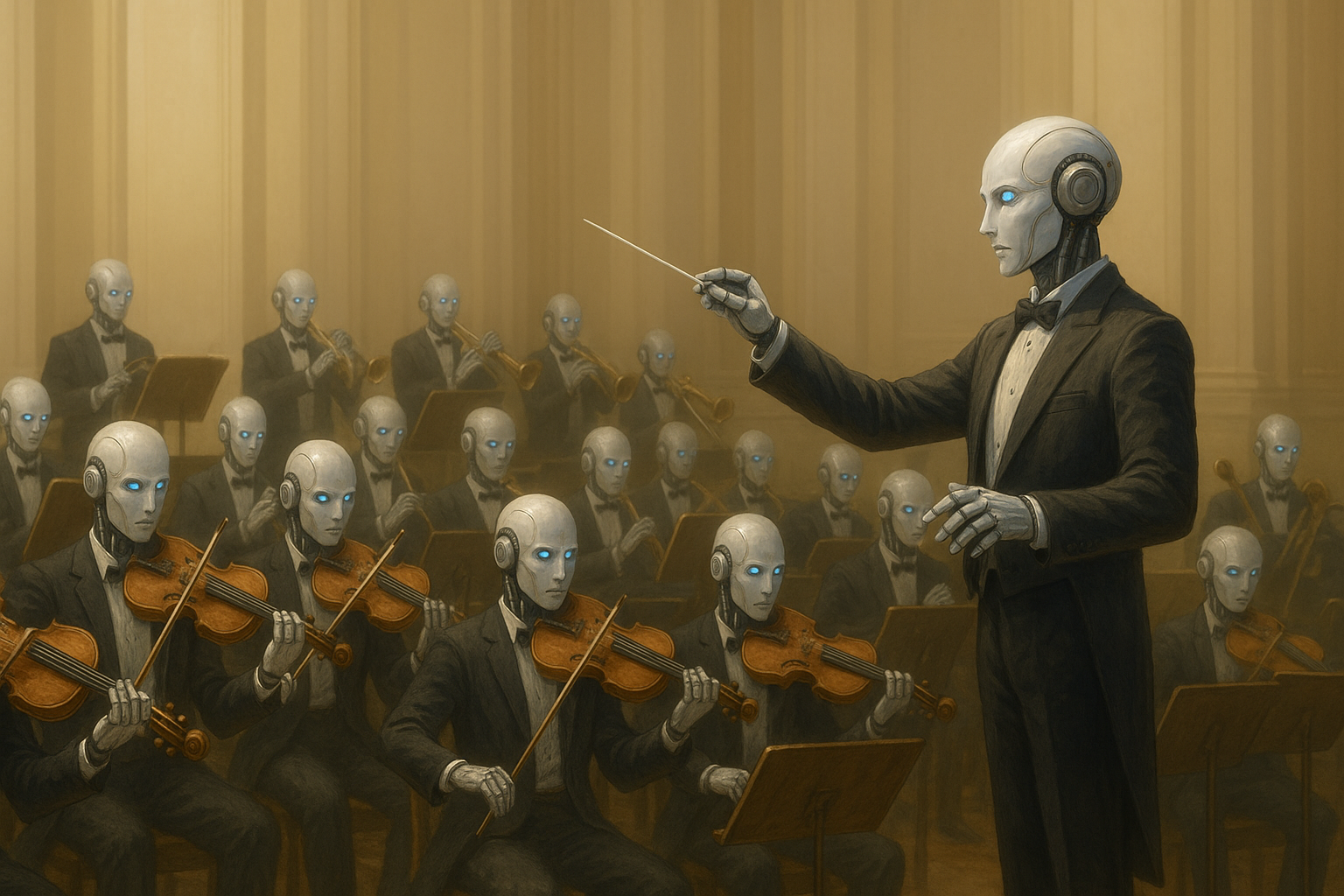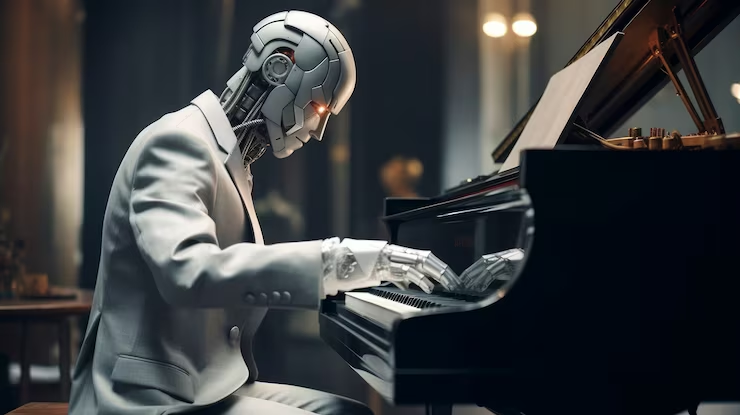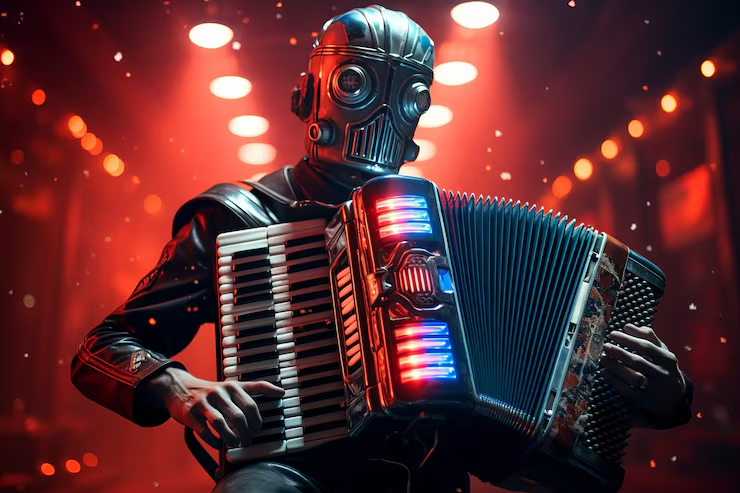
Music has long been seen as the “language of the soul” – something only humans, with their emotions and life experiences, could truly create. But now, artificial intelligence (AI) and robots are stepping into one of the most sacred domains: composing symphonic music. Could they become the “Beethovens of the digital age”?
How Can AI Compose Without Actually Hearing Music?
Here’s the paradox: AI does not listen to music the way we do. It doesn’t feel goosebumps when the orchestra swells, nor shed tears over a sad sonata. Instead, AI breaks music down into pure data: notes, chords, tempo, harmony, pitch, and structure.
Through deep neural networks, AI analyzes millions of existing compositions, learning patterns: why certain chords often follow others, how orchestration builds tension, or how a symphony typically unfolds over 30 minutes. Once trained, the AI can recombine these patterns to generate entirely new works.
In short: AI doesn’t hear — it calculates. And with its immense processing power, it can churn out polished, technically flawless compositions at a speed no human can match.
Meet the AI Composers
-
AIVA: Officially recognized as a “composer” by SACEM (France), AIVA specializes in symphonic scores for film and video games.
-
Magenta (Google): A research project that can generate melodies based on just a few notes of input.
-
MuseNet (OpenAI): Capable of creating multi-minute compositions, blending instruments and even mimicking the style of Mozart, Chopin, or The Beatles.
Some orchestras in Europe have even performed AI-written works — and many in the audience couldn’t tell whether the composer was human or machine.

Is It Better Than Human Music?
Technically, AI music tends to be clean, coherent, and rule-perfect. But critics argue it still lacks the raw human spirit — the pain, joy, and personal struggles that Beethoven or Tchaikovsky poured into every note.
Yet history shows that music evolves. What sounded “inhuman” yesterday may define tomorrow’s taste. Just as we embraced electronic, rock, and hip-hop, perhaps future generations will find beauty in the precision of AI-composed symphonies.

Music: The Key to Unlocking AI’s True Potential?
Some researchers believe that if AI can one day compose music that moves us emotionally, it may mark a leap toward Artificial General Intelligence (AGI) — an AI capable of true creativity, imagination, and empathy.
So maybe the real question isn’t “Will AI replace Beethoven?” but rather:
One day, will we sit in a concert hall and cry to a symphony written by a machine?
